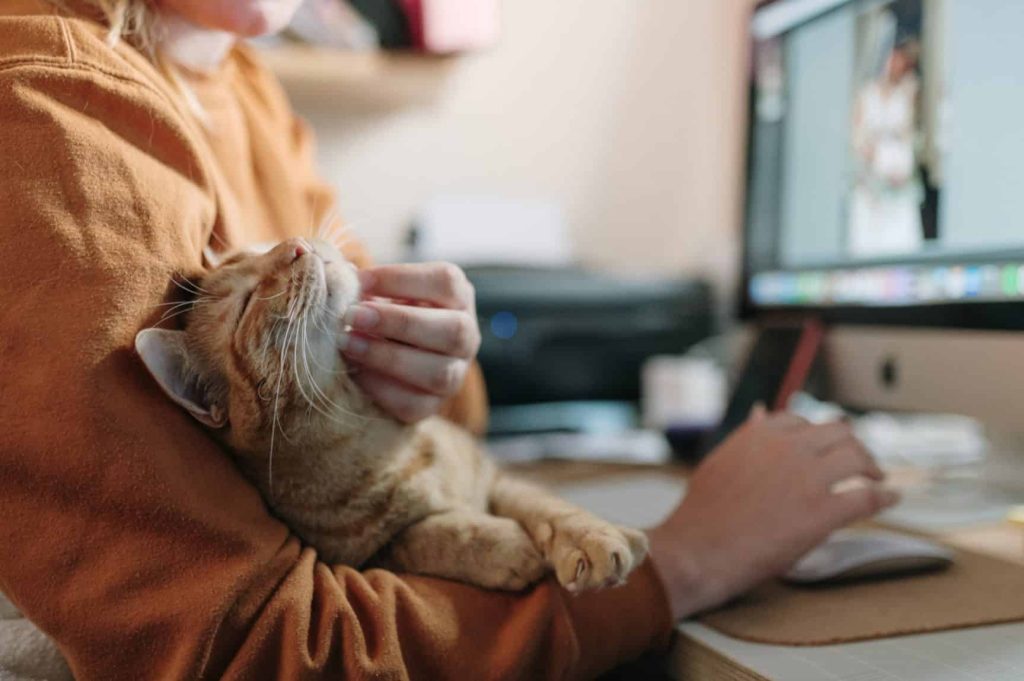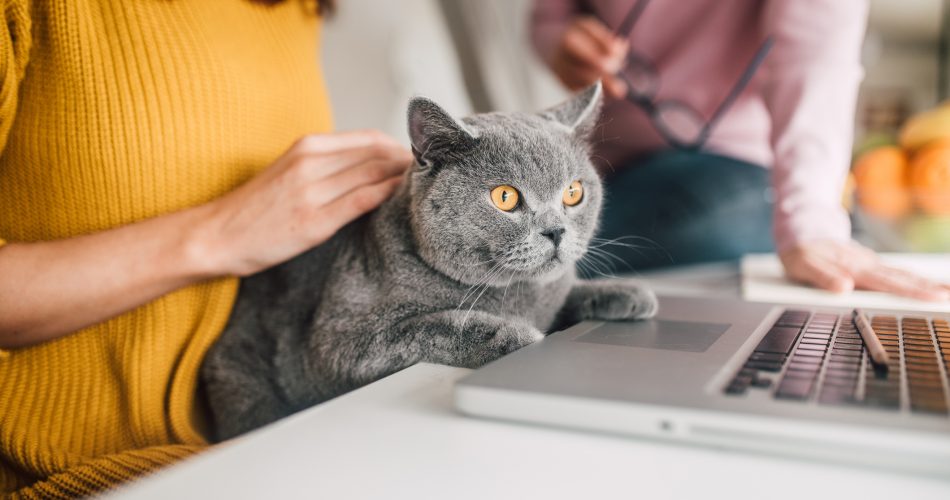Cats are often seen as independent, low-maintenance pets, but their impact on families can be far-reaching and surprisingly beneficial. Beyond their playful antics and soothing purrs, cats bring many emotional, social, and even physical benefits to families. Whether you have young children, older family members, or are a couple without kids, a cat can be an invaluable companion who contributes to the overall well-being of your household. Here are some of the surprising ways that cats help families thrive.
Reducing Stress and Promoting Relaxation
In today’s fast-paced world, stress is a common challenge for many families. However, the presence of a cat in the home can be a natural stress reliever. Studies have shown that petting a cat can lower blood pressure and reduce stress levels. This is partly due to the calming effect of their purring, which has been scientifically proven to trigger the release of oxytocin, the “love hormone,” in both the cat and their human companions.
When family members are feeling overwhelmed, spending time with a cat can offer a sense of calm. Cats can help individuals unwind after a long day, offering their quiet companionship and soft purring as a source of comfort. Whether you’re playing with them, cuddling, or simply observing them, cats have a way of making stressful situations seem more manageable.
Teaching Responsibility and Empathy
Having a cat in the family is an excellent way to teach children responsibility and empathy. Caring for a cat involves feeding, cleaning, grooming, and ensuring their well-being, which helps children learn how to take care of another living being. This responsibility is an important life lesson that can translate into other areas of life as children grow older.
In addition to responsibility, children learn empathy by observing and caring for their pet. They quickly become attuned to the cat’s needs and emotions. When a cat is hungry, tired, or seeking affection, children learn to recognize these cues and respond accordingly. This nurtures emotional intelligence and helps children develop a strong sense of compassion toward both animals and people.

Boosting Physical Health
While cats may not require as much physical activity as dogs, they still encourage family members to get up and move. Interactive playtime, such as using feather wands, laser pointers, or balls, can motivate both children and adults to be more physically active. Running around after a toy or engaging in a play chase with your cat can offer valuable exercise, especially for kids who might otherwise be glued to screens.
Moreover, studies suggest that owning a pet like a cat can help lower the risk of heart disease. The act of petting a cat or simply being around them can help reduce cortisol levels, which are associated with stress, and increase the levels of serotonin, which boosts mood and promotes general well-being. In this way, having a cat can contribute to the overall physical health of the family.
Improving Social Connections
Cats can also serve as social bridges within families. In homes with multiple people, cats often act as a common interest, sparking conversations and bonding moments. Whether it’s discussing the cat’s quirky behavior or sharing a moment of affection with the pet, cats help foster communication and connection within the family unit.
In addition to strengthening family bonds, cats can facilitate connections between people outside the family. For example, neighbors or visitors might be drawn to a friendly, approachable cat. A cat can spark conversations and shared experiences, creating opportunities for families to interact with others. For families who may have difficulty engaging socially, a cat can be a great icebreaker.

Encouraging Emotional Support and Comfort
Cats are naturally intuitive animals, and many can sense when their human companions are feeling down or anxious. This makes them excellent emotional support animals. They may curl up beside a family member who is feeling sad, offer gentle purring to comfort them, or simply stay near them as a source of calm. Their non-judgmental presence and unconditional love can be incredibly reassuring, especially for children or adults dealing with emotional challenges.
Moreover, the simple act of having a cat nearby can improve overall mental health. A study found that people who own cats have a lower risk of developing depression or anxiety. Cats can create a sense of companionship, alleviating feelings of loneliness or isolation, particularly for those living alone or for elderly family members who may benefit from a soothing presence.
Providing Structure and Routine
Cats thrive on routine, and their predictable habits can help bring structure to a household. Feeding times, litter box maintenance, and daily play sessions all require a certain level of consistency. For families, particularly those with children, maintaining a routine for the cat can instill a sense of discipline and regularity in daily life. This can be especially beneficial in busy households, where routines help everyone stay organized and reduce chaos.
Additionally, the need to care for a cat can provide a sense of purpose and accomplishment for family members. The act of taking care of a pet is rewarding and can help children and adults alike develop a sense of commitment to something outside of themselves.
Enhancing Family Bonding

A cat can enhance family bonding in unexpected ways. The shared experience of caring for a pet or engaging in activities together—like playing with the cat, making them homemade toys, or even teaching them simple tricks—creates opportunities for families to come together. Family members can share responsibilities, collaborate on tasks like grooming, and celebrate the joy of watching the cat grow and learn.
For couples, having a cat can help strengthen their relationship. Sharing the responsibility of caring for a cat can foster teamwork and cooperation, and the cat’s presence can provide moments of lightheartedness and joy, which are essential for maintaining a positive, strong partnership.
Providing a Sense of Security
Many people feel a heightened sense of security when they have a pet in the home. Cats, though generally more independent than dogs, still offer a sense of protection. Their acute senses allow them to notice things that might otherwise go unnoticed—such as the sound of a car pulling into the driveway or unfamiliar noises outside. While they may not be as vocal or alert as some other pets, their presence alone can make a family feel more at ease.
Additionally, cats’ ability to sense changes in their environment can help families feel more attuned to potential threats or dangers, even if they aren’t immediately obvious. The comfort of knowing your cat is attuned to the household’s dynamics adds a layer of reassurance and peace of mind.
Conclusion
Cats may be small, but their impact on a family is profound and multifaceted. From reducing stress and promoting relaxation to teaching responsibility, enhancing social connections, and offering emotional support, cats contribute to the overall well-being of families in surprising and meaningful ways. Whether it’s their soothing purrs, playful antics, or their ability to sense our emotions, cats help families thrive by bringing love, joy, and stability into the home. If you’ve ever wondered how a cat could improve your family life, the answer is clear: they’re much more than just pets—they’re beloved family members who help make life richer and more rewarding.
